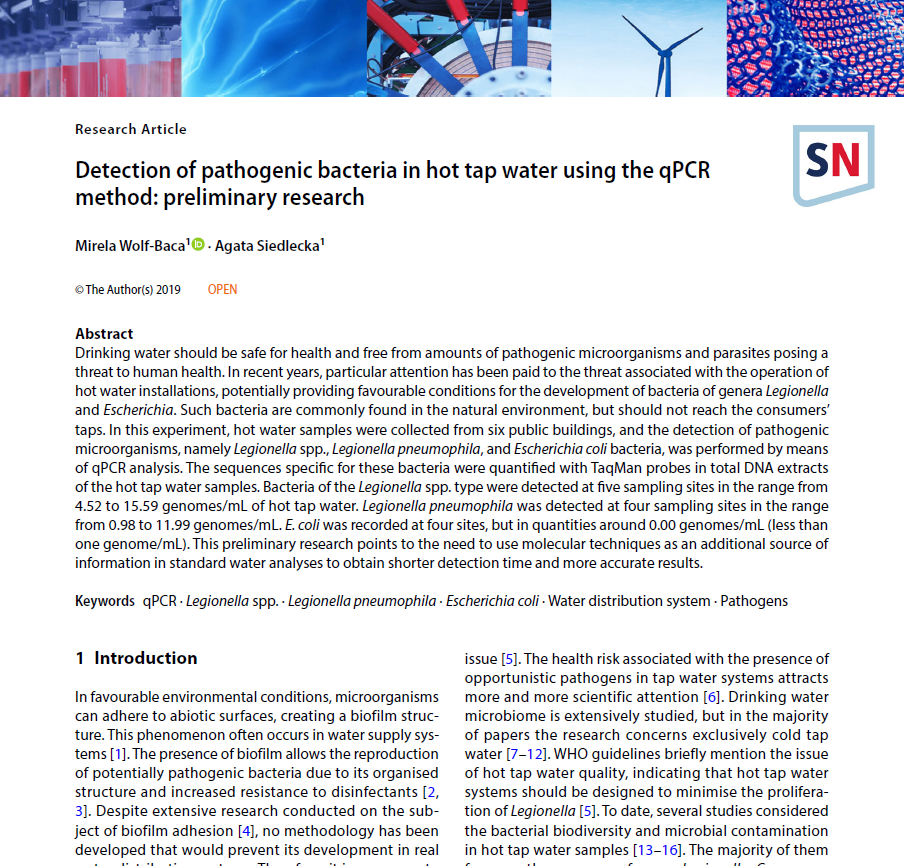
- October 23, 2019
Detection of pathogenic bacteria in hot tap water using the qPCR method: preliminary research
Mirela Wolf‑Baca,Agata Siedlecka| Faculty of Environmental Engineering, Wroclaw University of Science and Technology, Stanislawa Wyspianskiego 27 Street, Wroclaw, Poland |
2019 | SN Applied Sciences; 1:840 doi.org/10.1007/s42452-019-0533-1
The quality of human drinking water is regarded as a series issue as the presence of potentially pathogenic microorganisms can have a negative impact on the consumers health. Hot water provides favorable conditions for the development of bacteria of genera Legionella and Escherichia with optimal development occurring in temperatures of 30-43°C. These bacteria are naturally found in the environment but should not be reaching the human water distribution systems. In this experiment, hot water samples were collected and the detection of Legionella spp., Legionella pneumophila, and Escherichia coli was performed by qPCR analysis on the MIC qPCR cycler. The sequences specific for these bacteria were quantified with TaqMan probes in total DNA extracts of the hot tap water samples. Bacteria of the Legionella spp. type were detected with a range of 4.52 to 15.59 genomes/mL of hot tap water whilst Legionella pneumophila was detected with a range from 0.98 to 11.99 genomes/mL. E. coli was recorded but in quantities less than one genome/mL. This study shows that qPCR is a fast and accurate method for the detection of microorganisms in tap water and can provide results on the day of sampling.
Read More